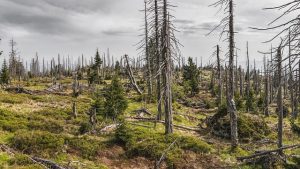 Is Environmental Science Marketable in Kenya? It is a common question for students making career choices. Environmental science is an interdisciplinary field addressing ecological preservation, resource management, and sustainability. In Kenya, with its rich biodiversity and environmental challenges, one might assume a high demand for environmental science professionals. However, the reality presents a more complex scenario.
Is Environmental Science Marketable in Kenya? It is a common question for students making career choices. Environmental science is an interdisciplinary field addressing ecological preservation, resource management, and sustainability. In Kenya, with its rich biodiversity and environmental challenges, one might assume a high demand for environmental science professionals. However, the reality presents a more complex scenario.
Current Job Market for Environmental Science Graduates
The employment landscape for environmental science graduates in Kenya is moderate. A search on LinkedIn for instance reveals approximately 28 environmental science job listings in the country. While this indicates some opportunities, the number is relatively low compared to other fields. Positions range from entry-level to mid-senior roles, suggesting that while opportunities exist, they are not abundant.LinkedIn
Moreover, the Government of Kenya offers annual salaries between KES 778,000 and KES 846,000 for environmental scientist positions. While this is a respectable income, the limited number of positions implies that securing such roles is competitive.Glassdoor
Educational Pathways: Certificate, Diploma, or Degree?
When considering educational qualifications, a Bachelor’s degree in environmental science or related fields is often the minimum requirement for most positions. For instance, the Public Service Commission of Kenya mandates a Bachelor’s degree in specific disciplines, including environmental science, for entry-level roles. Diplomas and certificates may offer foundational knowledge but typically do not meet the qualifications for many professional roles in this sector.
Marketability of Environmental Science in Kenya
Assessing the marketability of environmental science in Kenya, it can be categorized as average. While there is a growing emphasis on environmental conservation and sustainable development, the number of dedicated positions remains limited. Graduates may need to explore roles in related fields or consider further specialization to enhance employability.
Recommendation for Prospective Students
For students passionate about environmental issues, pursuing a degree in environmental science can be fulfilling. However, it’s crucial to be aware of the competitive job market. To improve employment prospects, consider the following strategies:
- Pursue Higher Education: Aim for at least a Bachelor’s degree to meet the standard qualifications for most roles.
- Gain Relevant Experience: Engage in internships, volunteer work, or part-time positions related to environmental projects to build practical skills and a professional network.
- Specialize: Focus on niche areas within environmental science, such as Environmental health and safety, renewable energy, environmental impact assessment, or conservation biology, to stand out in the job market.
- Stay Informed: Keep abreast of emerging trends and policies in environmental science to remain relevant and adaptable.
So, Should You Take This Course?
✅ Yes, if:
- You are passionate about the environment and sustainability.
- You’re willing to be proactive—build a network, volunteer, and look beyond formal employment.
- You combine your degree with GIS, EIA licenses, data analysis, or renewable energy training to boost your employability.
❌ No, if:
- You’re looking for a “safe” course with many job openings.
- You aren’t interested in environmental issues and just want a marketable course for income.
- You’re not willing to pursue further studies or hands-on experience.
Final advice on Is Environmental Science Marketable in Kenya
Environmental Science is not useless—but it’s not for everyone. In Kenya’s job market, you’ll need passion, strategy, and patience to make this course work for you. If you’re truly committed, it can lead to a fulfilling career in a field that’s increasingly important for Kenya and the planet. Otherwise, consider more in-demand technical or business-oriented fields if you’re looking for a “safe” course with many job openings.
Join the community
Is your preferred course marketable? Do not invest your time and money in "useless courses". Your future matters to us a lot. Subscribe to our newsletter for curated articles on the marketability of each course to help you make informed educational and career choices. Join now!
